LEAPS Newsletter
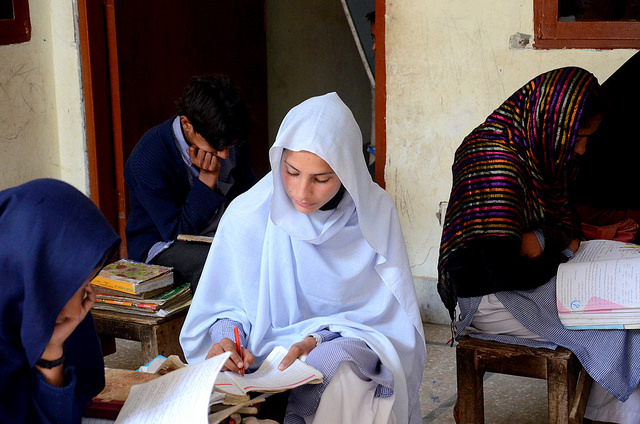

Enrollment levels are up, but learning outcomes remain stagnant. Researchers at EPoD and CERP are striving to understand how to improve quality in Pakistan’s schools.
Summer 2017 was a milestone in over 15 years of work by the LEAPS team – Learning and Educational Achievements in Pakistan Schools – to better understand barriers to quality improvement and spur innovation in Pakistan’s educational ecosystem.
Highlights included...
- Ednovate Pakistan, an event to share evidence on what works and to catalyze innovation across Pakistan’s education sector, held in Lahore on July 11.
- An educational ‘mela’ – the first trade fair LEAPS has held for government schools – which took place in Lahore on May 24.
- Publication of the results of a large-scale field research study that showed that giving parents information on school performance led to a surprising range of improvements in both public and private schools.
The latest surge of LEAPS activities has been supported by RISE – a large-scale education systems research program funded by the UK and Australian governments.
Ednovate Pakistan: A dialogue fostering evidence-driven innovation in education
Key thought leaders and decision-makers in Pakistan convened to discuss the value of evidence-driven decision making and an innovation-based ecosystem for the public, private, and non-profit education sectors. The daylong conference, Ednovate Pakistan, took place at LUMS SoE (Lahore University of Management Services - School of Education) on July 11, co-hosted by CERP (Center for Economic Research in Pakistan) with support from Evidence for Policy Design (EPoD). This was the first in an annual series of Ednovate events. Speakers included prominent actors from the education arena in Pakistan, and attendees included policymakers, educationalists, economic researchers, and representatives of non-government organizations and donor agencies.
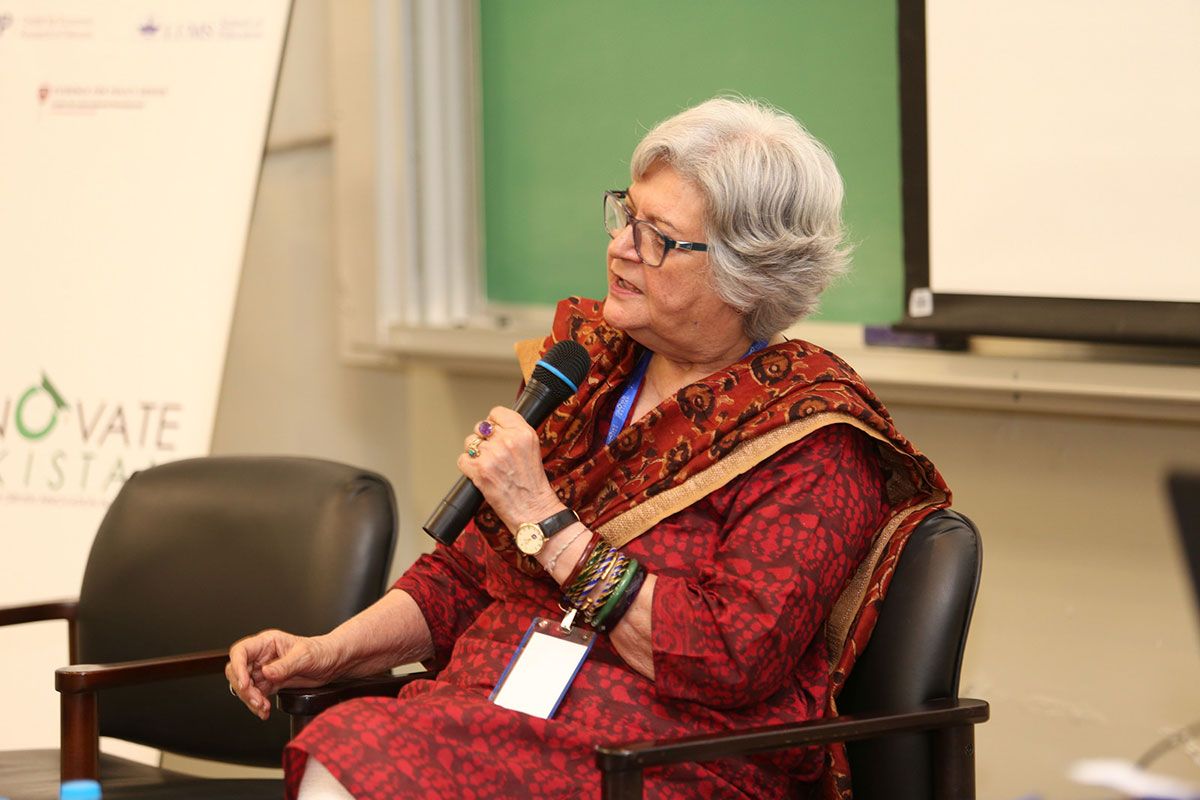
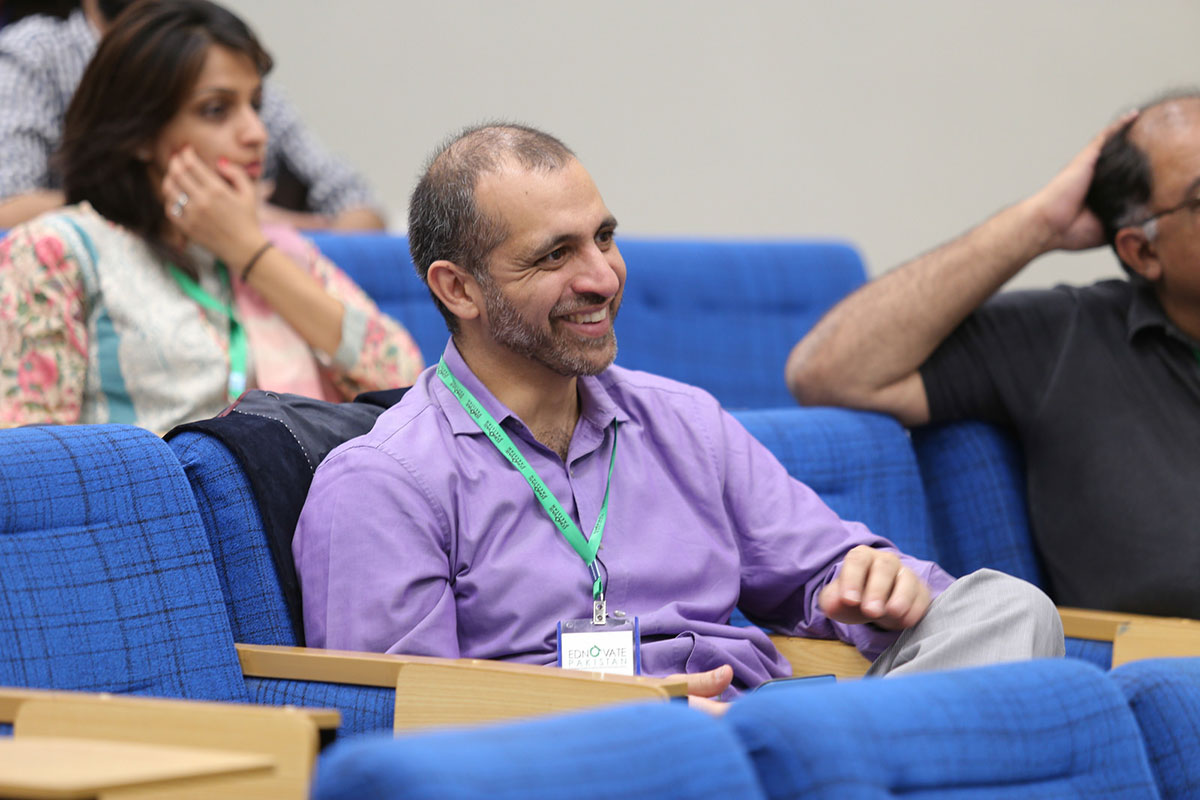
See more pictures from Ednovate Pakistan in EPoD’s Flickr album.
An educational mela for government schools
One of the most important interventions under LEAPS is to hold melas, or trade fairs, that serve as platforms to connect vetted education support service providers to schools. Most of the melas have targeted low cost-private schools, but this year the EPoD and CERP teams organized an event for government schools, in collaboration with the Punjab Information Technology Board. The mela brought together representatives from over 100 public schools and was extremely successful in getting public school teachers, principals, and administrators excited about Education Support Services (ESS), particularly those that are technology‐based.
A major paper on the effects of an informational intervention on school outcomes
Information allows parents to choose schools based on their quality (and price) and in turn, schools can invest in quality enhancements, knowing that they will be recognized and rewarded. A paper showing these effects, titled “Report Cards: The Impact of Providing School and Child Test Scores on Educational Markets,” appeared in the American Economic Review in June 2017.
LEAPS Primary Investigators Tahir Andrabi (Pomona College), Jishnu Das (the World Bank), and Asim Ijaz Khwaja (EPoD/Harvard) conducted a large-scale randomized controlled trial (RCT) to measure the impact of providing families with information about their child’s test scores compared to the average test scores of all the different schools in their village. The intervention led to increased competition among these schools, improved test scores (by 0.11 standard deviations), a drop in school fees by 17%, and an increase in primary school enrollment by 4.5%. School quality increased in many schools, and the lowest-performing private schools in a given village became more likely to shut down.
The study gained significant attention in academic circles and beyond. It was cited in the World Bank's World Development Report 2018, released on September 26 in a chapter on "How to escape low-learning traps." A number of articles interpreted the study's findings for various audiences:
- Asim Ijaz Khwaja and Tahir Andrabi described the research in simple terms in an op-ed in The Friday Times, September 22: School report cards help Punjab parents choose.
- The three authors summarized their research for VoxDev, June 26: The power of information in improving school performance.
- Diana Schoder covered the results for the AEA blog, July 12: An A+ experiment.
- World Bank Economist David Evans highlighted some interesting nuances of the experiment for his "Let’s Talk Development" blog, August 3: Better information to improve service delivery: New evidence.
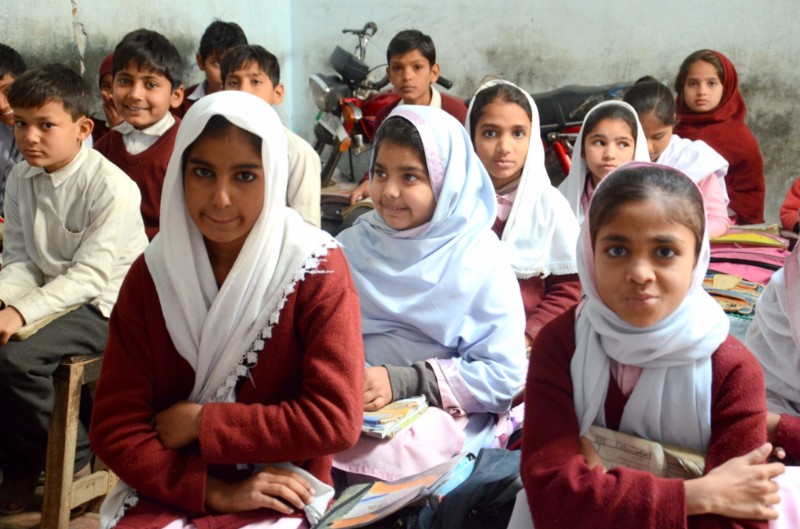
The context for LEAPS research: Education in Pakistan
There have been vast changes in the education landscape of Pakistan in recent decades, particularly with respect to the mushrooming growth of low-cost private school sector: today, 40% of Pakistani children are enrolled in private schools. These changes present both an opportunity and a challenge for education policy in Pakistan, primarily because even though there has been a strong focus on educational reform and significant progress in enrollment and educational access across the country, learning outcomes remain vastly substandard. Tests of over 22,000 children in grades 3, 4, and 5 (ages 8–10) in Urdu, English, and Mathematics collected between 2003 and 2007 identified substantial deficits. LEAPS surveys in rural Punjab showed that by the end of grade 3, many children had not mastered grade 1 curriculum, and the majority had not mastered grade 2 curriculum.
Since 2003, the LEAPS team led by economists Andrabi, Das, and Khwaja has pursued transformational research to understand the impacts of these changes and to answer the question: How can we improve learning outcomes for students, particularly by looking beyond traditional inputs and addressing system level failures?
The LEAPs team is seeking ways to improve educational outcomes by testing the impact of:
- Providing all players in a closed educational ecosystem equal access to information regarding the quality of education provided by schools.
- Giving schools access to the financial resources necessary to enable quality enhancements.
- Addressing knowledge and innovation failures by facilitating the growth of a robust market for educational support services.
- Alleviating frictions in the labor market in order to support the recruitment, training, and retention of the highest performing teachers in both public and private school settings.
For more information on LEAPS, read an overview by EPoD’s Alia Braley and Tiffany Simon on American Pakistan Foundation’s blog: EPoD’s Data-Driven Research on Education in Pakistan.
To read the research LEAPS has produced, visit the LEAPS page on EPoD’s website.
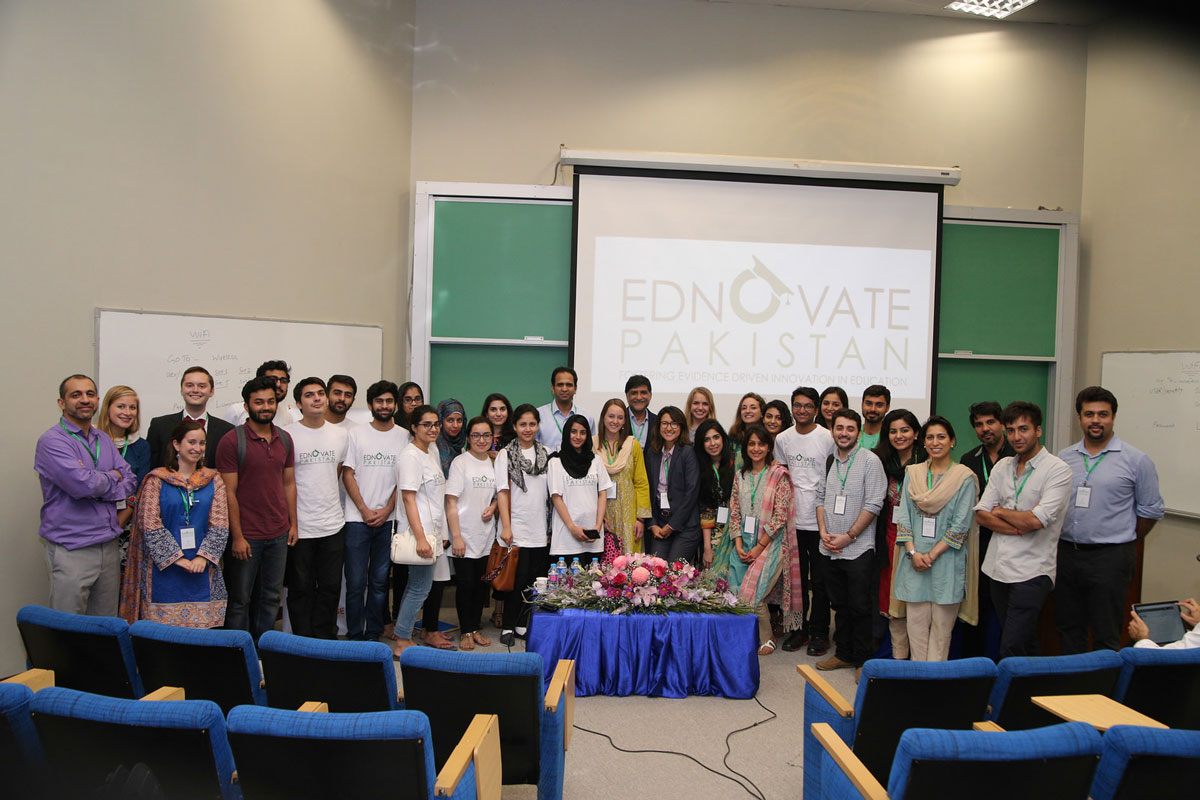
Teams from LUMS SoE, CERP, and EPoD at Ednovate Pakistan.






